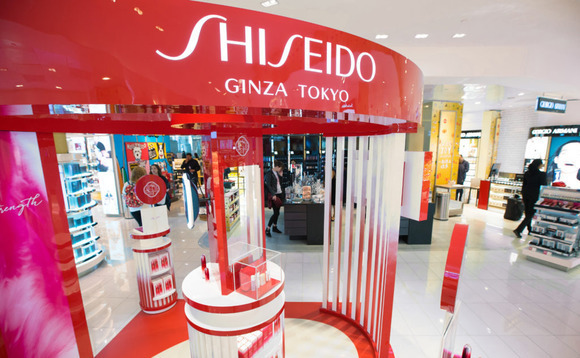
Japan's Shiseido sells US makeup brands to Advent

Japan’s Shiseido has extended a program of non-core divestments with the sale of three of its US makeup brands to Advent International for $700 million.
The brands include bareMineral and Buxom, both acquired in $1.9 billion deal in 2010, and Laura Mercier, acquired in 2016 for $248 million. In a filing, Shiseido cited an "extremely volatile business environment, mostly impacted by the spread of COVID-19" in its decision.
The Japanese cosmetics giant also framed the divestment as part of a strategic pivot that would see it specialize into a premium skincare leader by 2030. This plan involved a carve-out to private equity as recently as February when CVC Capital Partners agreed to acquire a majority stake in a budget-priced shampoo and lotions division at a valuation of about $1.5 billion.
Advent will organize bareMineral, Buxom, and Laura Mercier as a single entity with Pascal Houdayer, a 30-year beauty industry veteran, in the role of CEO. The plan is to develop innovative products, expand into new categories and geographies, and enhance digital engagement with customers.
"We believe these brands have significant runway for growth, particularly as we see the large and growing color cosmetics market benefitting from secular tailwinds," Houdayer said in a statement.
Shiseido has struggled to grow these brands, which accounted for only 5% of the company's $8.6 billion in group sales last year despite ranking among the top "prestige" labels in the US. In addition to lower foot traffic due to COVID-19, the inertia has been attributed to an underdeveloped e-commerce strategy. Shiseido will retain a US presence with the brands Nars and Drunk Elephant.
Corporate carve-outs are commonly cited as the major deal flow driver in Japan for private equity firms, but there have been only 18 such deals per year on average for the past four years. Much of the action has been at the larger end of the market, although middle-market players are reporting an uptick in opportunities.
Long-term drivers of this activity include a shift in Japanese business culture, a tendency for local companies to be relatively more diversified, and greater regulatory pressure on corporate governance against a flat macro backdrop.
The trend has been punctuated most recently by pandemic-related financial stress and a rise in activist investor influence.
Latest News
Asian GPs slow implementation of ESG policies - survey
Asia-based private equity firms are assigning more dedicated resources to environment, social, and governance (ESG) programmes, but policy changes have slowed in the past 12 months, in part due to concerns raised internally and by LPs, according to a...
Singapore fintech start-up LXA gets $10m seed round
New Enterprise Associates (NEA) has led a USD 10m seed round for Singapore’s LXA, a financial technology start-up launched by a former Asia senior executive at The Blackstone Group.
India's InCred announces $60m round, claims unicorn status
Indian non-bank lender InCred Financial Services said it has received INR 5bn (USD 60m) at a valuation of at least USD 1bn from unnamed investors including “a global private equity fund.”
Insight leads $50m round for Australia's Roller
Insight Partners has led a USD 50m round for Australia’s Roller, a venue management software provider specializing in family fun parks.








